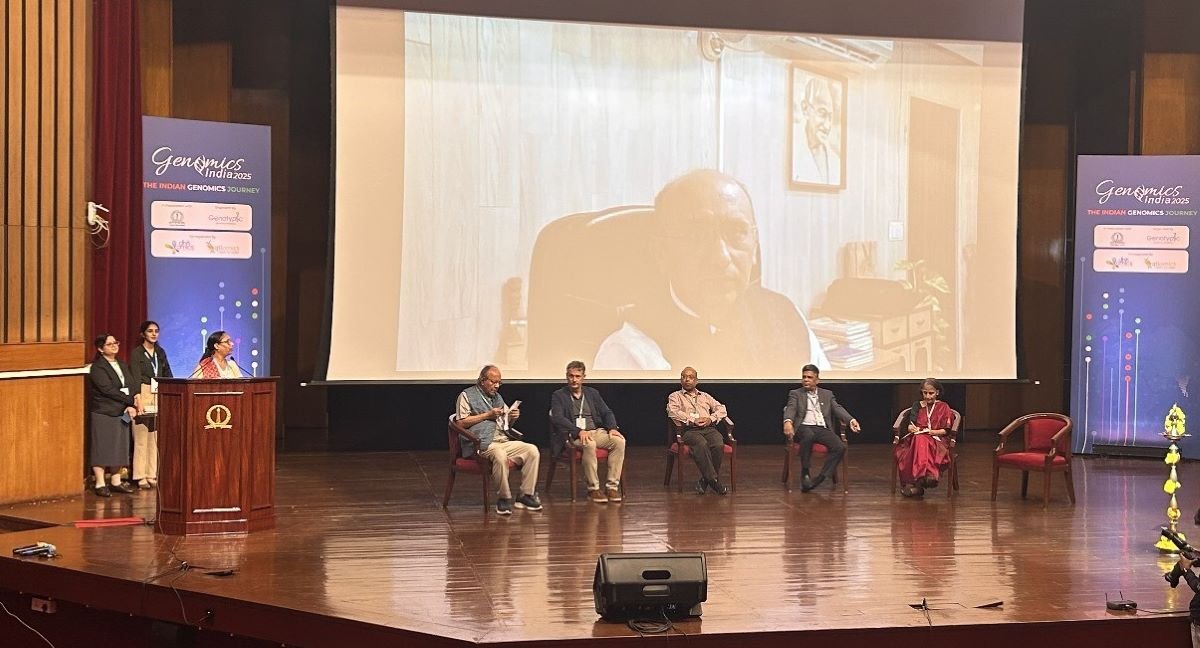'One Day One Genome' aims to publicly release annotated genomes of microbes to enhance understanding of their scientific and industrial potential: Dr Rajesh S Gokhale
August 21, 2025 | Thursday | News
Virtually addressing the gathering of 5th Genomics India Conference in Bengaluru
Introducing the 'One Day One Genome' initiative of the Government of India, Dr Rajesh S Gokhale, Secretary Department of Biotechnology (DBT), the Ministry of Science and Technology, Government of India; Director General, Biotechnology Research and Innovation Council (BRIC) & Chairman, Biotechnology Industry Research Assistance Council (BIRAC) said that this initiative from DBT and BIRAC aims to publicly release annotated genomes of microbes to enhance understanding of their scientific and industrial potential.
Virtually addressing the gathering of 5th Genomics India Conference (GIC) jointly organised by Genotypic Technology and the Indian Institute of Science (IISc), and co-organised by Dhitiomics Technologies and QTLomics Technologies centred on the theme “The Indian Genomics Journey” at the J.N. Tata Auditorium, IISc, Bengaluru on August 12, 2025, Dr Gokhale identified genomics to play pivotal role in personalised treatment, pandemic preparedness, food security, and biodiversity conservation.
He discussed the use of multiomics alongside genomics to create digital twin models, promoting precision medicine and personalized therapies. He highlighted the GenomeIndia project, which has conducted whole genome sequencing for 10,000 healthy individuals, archived at the Indian Biological Data Centre, and recognised by Prime Minister Narendra Modi as a significant biotechnology milestone.
He elaborated on DBT’s focus on cell and gene therapy to address rare genetic diseases, oncology, and hematological disorders. The Indian Tuberculosis Genomic Surveillance Consortium’s ongoing whole genome sequencing of over 30,000 samples was also underscored as essential for tuberculosis surveillance.
He informed that the BioE3 Policy, approved by Union Cabinet in August 2024, is designed to establish India as a global biomanufacturing hub by merging biotechnology with artificial intelligence. This initiative aims to convert biology into an industrial force, focusing on sustainable manufacturing, circular bioeconomy, and addressing global challenges. The framework emphasizes six areas: Carbon Capture & Utilization, Precision Biotherapeutics, Smart Proteins, Enzymes, Climate Resilient Agriculture, and innovative marine and space research.
Earlier commending the organizers of the GIC 2025, Dr Gokhale highlighted that COVID acted as a catalyst for the transformation of genomic surveillance into a widely used policy-driven tool rather than merely a specialized scientific endeavor, citing past examples like the Influenza A(H1N1), MERS-CoV, Ebola, and Zika virus outbreaks where genomic surveillance played a critical role in detection and control.
The gathering comprises of genomics researchers from across sectors such as healthcare, agriculture, data analytics and sports medicine etc. Prof. Samir Brahmachari, Founder Director of CSIR-Institute of Genomics and Integrative Biology (CSIR-IGIB), Dr Raja Mugasimangalam, CEO and founder of Genotypic Technology, Dr. Sudha Rao, Co-Founder, Genotypic Technology and Founder of Dhiti Omics Technology, Prof. K. V. S. Hari Director of CBR, IISc, Prof. Debnath Pal, CDS, IISc, co-convener of GIC 2025, Dr Piero Carninci - HUGO President were present on the occasion.









